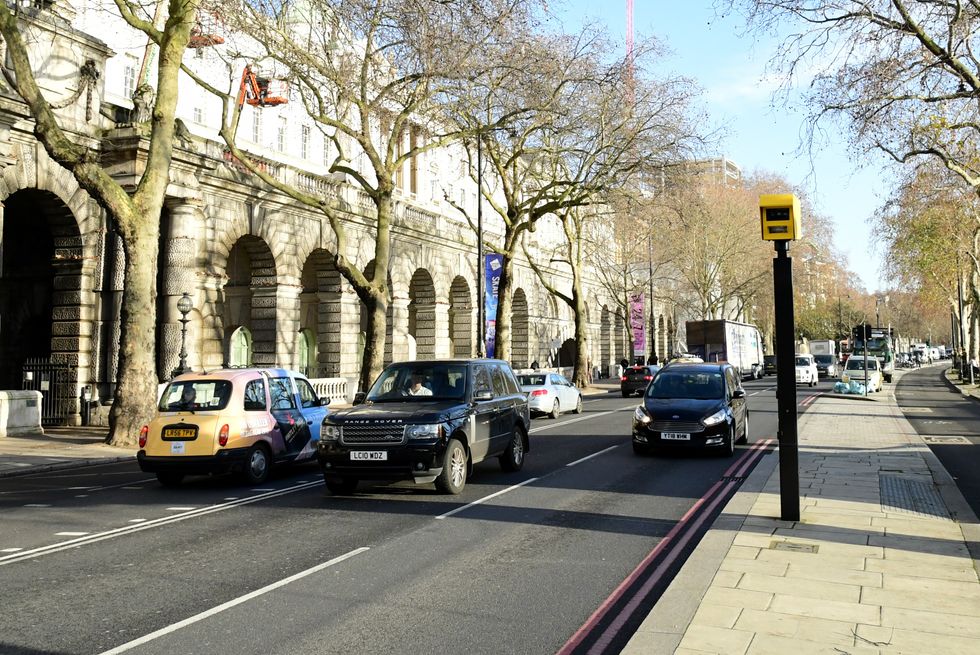Vehicles should be taxed per-mile and weight instead of by 'deeply flawed' emissions rules, radical study reveals

Study highlighted the benefits pay-per-mile taxes could have on the UK
Don't Miss
Cars should be taxed by weight and mileage rather than by emissions which could offer a more "universal approach," a new study has claimed.
The radical proposal comes from experts at the University of Oxford which found that a car's weight and distance travelled are more reliable indicators of environmental impact than current emissions-based measurements.
The findings detailed in their forthcoming book "Critical Mass: The One Thing You Need to Know About Green Cars," challenge the existing Vehicle Excise Duty (VED) system.
Experts from the study argued that the current road tax structure is "deeply flawed" and is a "mishmash of incentives and penalties".
Do you have a story you'd like to share? Get in touch by emailing motoring@gbnews.uk

Pay-per-mile road tax seen as a more fare measure than emissions-based levy
| PAThe suggested changes come despite HM Treasury previously telling GB News it has “no plans to introduce road pricing”.
A spokesperson explained: “We are committed to supporting our automotive sector as we transition to electric vehicles in order to meet our legally binding climate targets."
The book will be launched at Keble College, Oxford, on November 25 and Imperial College, London, on December 2. The events will be hosted by Steve Gooding, Chief Executive of the RAC Foundation and former Director General at the Department for Transport.
The study has already gained notable support, with former Deputy Prime Minister Michael Heseltine who welcomed the contribution to the “most important challenge of our time".
Under the proposed system, car owners could save £100 annually by either driving 1,000 fewer miles or choosing a vehicle that's 150kg lighter. The new approach aims to incentivise the purchase of smaller, lighter vehicles while penalising heavy cars and SUVs that cover high mileages.
Felix Leach, co-author of the report stated: "Specific tax rates are proposed and compared to existing taxes to illustrate winners and losers - winners being small city cars and loser including high-mileage heavy cars and SUVs.”
The system could be implemented quickly and would provide reliable revenue at a time of declining vehicle taxation. Meanwhile Nick Molden, the other co-author argued that a car's weight accounts for approximately three-quarters of its environmental impact, making it a strong metric for measuring environmental damage.
The proposal aims to simplify choices for car buyers who currently face confusing rates and inconsistencies.
Molden explained: "Most people want to do the right thing environmentally when they are buying a car, but the information and choices are now too complex for any normal consumer to understand fully.”
The timing is particularly relevant as the UK is preparing for significant changes to its road tax system next year. The authors promise to outline proposals for a simpler, more environmentally credible road tax system at the launch events.
From April 2025, electric vehicles will lose their current tax-free status under major changes to the car tax system. New EV buyers will initially face a £10 first-year tax rate, the lowest band available.
From the second year onwards, EV owners will need to pay the standard VED rate of £190, which is expected to rise with inflation from April 2025. The changes will particularly impact luxury electric vehicles, with additional taxes for EVs priced over £40,000.
LATEST DEVELOPMENTS:
 A pay-per-mile scheme could be an alternative to the current system of vehicle taxation | PA
A pay-per-mile scheme could be an alternative to the current system of vehicle taxation | PAUsed electric vehicle owners and hybrid drivers will also see their tax bills increase under the new legislation. These upcoming changes make the new weight and mileage proposal particularly timely, as the Government seeks to establish a fair taxation system for all vehicle types.
The new system would offer a straightforward approach to measuring environmental impact. "Taxing a car on a combination of its weight and mileage offers a simple, potentially universal approach to pricing-in the environmental impact of cars," Molden added.










